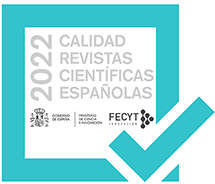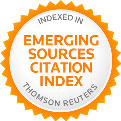Efecto de la suplementación con zumo de remolacha sobre el resultado obtenido en un test máximo incremental y en dos test de valoración de potencia del tren inferior en triatletas amateurs. [Effect of beetroot juice supplementation on the result obtained in a maximum incremental test and in two lower body power assessment tests in amateur triathletes].
Resumen
Resumen
El objetivo fue analizar los efectos de la suplementación con zumo de remolacha (ZR) sobre el rendimiento deportivo en triatletas amateur, medido mediante un protocolo de media sentadilla bilateral y unilateral, y con una prueba de salto con contramovimiento (CMJ), en situación de fatiga. Doce triatletas amateurs participaron en este estudio aleatorizado, a doble ciego y con un diseño cruzado compuesto por dos sesiones de evaluación que consistían en un test incremental hasta la extenuación ejecutado entre dos CMJ y dos pruebas de media sentadilla con 30 y 40 kg de manera bilateral y unilateral. La intervención nutricional consistía en ingerir 140 mL de ZR o placebo 2,5 h antes de la prueba. La suplementación con ZR mejoró el consumo máximo de oxígeno (VO2max) absoluto (p = 0,033) y relativo (p = 0,011) obtenido en la prueba incremental en comparación con placebo (4,12 ± 0,70 vs. 3,72 ± 0,90 ml·kg·min-1 y 54,82 ± 7,72 vs. 44,48 ± 15,84 ml·kg·min-1). Por otro lado, no se encontró una interacción significativa (p > 0,05, n2p = 0,03-0,30) para ninguna de las variables estudiadas en relación con el rendimiento bilateral y unilateral en media sentadilla ni CMJ entre la condición (placebo y ZR) y el tiempo (antes, PRE y después, POST). Estos resultados ponen de manifiesto que la suplementación con ZR ayuda a exhibir un mayor VO2max en triatletas amateurs pero no reduce la fatiga en comparación con la condición de placebo.
Abstract
The aim was to analyze the effects of beetroot juice supplementation (BJ) on sports performance in amateur triathletes, measured using a bilateral and unilateral half squat protocol, and a contramovement jump (CMJ), fatigue situation. Twelve amateur triathletes participated in this randomized, double-blind, crossover design consisting of two evaluation sessions consisting of an incremental test until exhaustion performed between two CMJs and two half-squat tests with 30 and 40 kg. bilateral and unilateral loading. The nutritional intervention consisted of taking 140 mL of BJ or placebo 2.5 h before the test. BJ supplementation improved absolute (p = 0,033) and relative (p = 0,011) oxygen uptake (VO2max) in incremental test in comparison to placebo. (4,12 ± 0,70 vs. 3,72 ± 0,90 ml·kg·min-1 y 54,82 ± 7,72 vs. 44,48 ± 15,84 ml·kg·min-1). On the other side, no significant interaction (p > 0,05, n2p = 0,03-0,30) was found for any of the variables studied in relation to bilateral and unilateral performance in half squat or CMJ between the condition (placebo and BJ) and time (before, PRE and after, POST). These results show that supplementation with BJ helps to exhibit greater VO2max in amateur triathletes but does not reduce fatigue compared to the placebo condition.
https://doi.org/10.5232/ricyde2022.06701
Referencias/references
Bailey, S. J.; Fulford, J.; Vanhatalo, A.; Winyard, P. G.; Blackwell, J. R.; DiMenna, F. J.; Wilkerson, D. P.; Benjamin, N., & Jones, A.M. (2010). Dietary nitrate supplementation enhances muscle contractile efficiency during knee-extensor exercise in humans. Journal of Applied Physiology, 109(1), 135-148.
https://doi.org/10.1152/japplphysiol.00046.2010
Bailey, S. J.; Winyard, P.; Vanhatalo, A.; Blackwell, J. R.; Dimenna, F. J.; Wilkerson, D. P.; Tarr, J.; Benajmin, N., & Jones, A.M. (2009). Dietary nitrate supplementation reduces the O2 cost of low-intensity exercise and enhances tolerance to high-intensity exercise in humans. Journal of Applied Physiology, 107(4), 1144-1155.
https://doi.org/10.1152/japplphysiol.00722.2009
Balsalobre-Fernandez, C.; Glaister, M., & Lockey, R. A. (2015). The validity and reliability of an iPhone app for measuring vertical jump performance. Journal of Sports Sciences, 33(15), 1574-1579.
https://doi.org/10.1080/02640414.2014.996184
Balsalobre-Fernández, C.; Romero-Moraleda, B.; Cupeiro, R.; Peinado, A. B.; Butragueño, J., & Benito, J. (2018). The effects of beetroot juice supplementation on exercise economy, rating of perceived exertion and running mechanics in elite distance runners: A double-blinded, randomized study. PLoS ONE, 13(7), e0200517.
https://doi.org/10.1371/journal.pone.0200517
Bassett, D. R. J., & Howley, E. T. (2000). Limiting factors for maximum oxygen uptake and determinants of endurance performance. Medicine and Science in Sports and Exercise, 32(1), 70-84.
https://doi.org/10.1097/00005768-200001000-00012
Bescós, R.; Ferrer-Roca, V.; Galilea, P. A.; Roig, A.; Drobnic, F.; Sureda, A.; Martorell, M.; Cordova, A.; Tur, J.A., & Pons, A. (2012). Sodium nitrate supplementation does not enhance performance of endurance athletes. Medicine and Science in Sports and Exercise, 44(12), 2400-2409.
https://doi.org/10.1249/MSS.0b013e3182687e5c
Bescós, R.; Rodríguez, F. A.; Iglesias, X.; Ferrer, M. D.; Iborra, E., & Pons, A. (2011). Acute administration of inorganic nitrate reduces VO(2peak) in endurance athletes. Medicine and Science in Sports and Exercise, 43(10), 1979-1986.
https://doi.org/10.1249/MSS.0b013e318217d439
Beyer, E. B.; Hale, R. F.; Hellem, A. R.; Mumbleau, A. M.; Schilaty, N. D., & Hewett, T. E. (2020). Inter and intra-rater reliability of the drop vertical jump (DVJ) assessment. International Journal of Sports Physical Therapy, 15(5), 770-775.
https://doi.org/10.26603/ijspt20200770
Boullosa, D. A., & Tuimil, J. L. (2009). Postactivation potentiation in distance runners after two different field running protocols. Journal of Strength and Conditioning Research, 23(5), 1560-1565.
https://doi.org/10.1519/JSC.0b013e3181a3ce61
Burnley, M., & Jones, A. M. (2007). Oxygen uptake kinetics as a determinant of sports performance. European Journal of Sport Science, 7(2), 63-69.
https://doi.org/10.1080/17461390701456148
Cermak, N. M.; Res, P.; Stinkens, R.; Lundberg, J. O.; Gibala, M. J., & van Loon, L. J. C. (2012). No improvement in endurance performance after a single dose of beetroot juice. International Journal of Sport Nutrition and Exercise Metabolism, 22(6), 470-478. United States.
https://doi.org/10.1123/ijsnem.22.6.470
Clerc, P.; Rigoulet, M.; Leverve, X., & Fontaine, E. (2007). Nitric oxide increases oxidative phosphorylation efficiency. Journal of Bioenergetics and Biomembranes, 39(2), 158-166.
https://doi.org/10.1007/s10863-007-9074-1
Dominguez, R.; Garnacho-Castano, M. V.; Cuenca, E.; Garcia-Fernandez, P.; Munoz-Gonzalez, A.; de Jesus, F.; Lozano-Estevan, M. D. C.; Fernandes da Silva, S.; Veiga-Herreros, P., & Maté-Muñoz, J.L. (2017). Effects of beetroot juice supplementation on a 30-s high-intensity inertial cycle ergometer test. Nutrients, 9(12), 1360.
https://doi.org/10.3390/nu9121360
Foster, C.; Florhaug, J. A.; Franklin, J.; Gottschall, L.; Hrovatin, L. A.; Parker, S.; Doleshal, P., & Dodge, C.A. (2001). A new approach to monitoring exercise training. Journal of Strength and Conditioning Research, 15(1), 109-115.
https://doi.org/10.1519/00124278-200102000-00019
Gonzalo-Skok, O.; Tous-Fajardo, J.; Suarez-Arrones, L.; Arjol-Serrano, J. L.; Casajús, J. A., & Mendez-Villanueva, A. (2017). Single-leg power output and between-limbs imbalances in team-sport players: Unilateral versus bilateral combined resistance training. International Journal of Sports Physiology and Performance, 12(1), 106-114.
https://doi.org/10.1123/ijspp.2015-0743
Govoni, M.; Jansson, E. A.; Weitzberg, E., & Lundberg, J. O. (2008). The increase in plasma nitrite after a dietary nitrate load is markedly attenuated by an antibacterial mouthwash. Nitric Oxide: Biology and Chemistry, 19(4), 333-337.
https://doi.org/10.1016/j.niox.2008.08.003
Jones, A. M. (2014a). Influence of dietary nitrate on the physiological determinants of exercise performance: A critical review. Applied physiology, nutrition, and metabolism = Physiologie Appliquee, Nutrition et Metabolisme, 39(9), 1019-1028.
https://doi.org/10.1139/apnm-2014-0036
Jones, A. M. (2014b). Dietary nitrate supplementation and exercise performance. Sports Medicine, 44 (Suppl 1), S35-45.
https://doi.org/10.1007/s40279-014-0149-y
Jones, A. M.; Thompson, C.; Wylie, L. J., & Vanhatalo, A. (2018). Dietary Nitrate and Physical Performance. Annual Review of Nutrition, 38, 303-328.
https://doi.org/10.1146/annurev-nutr-082117-051622
Kennedy, M. D.; Knight, C. J.; Falk Neto, J. H.; Uzzell, K. S., & Szabo, S. W. (2020). Futureproofing triathlon: expert suggestions to improve health and performance in triathletes. BMC Sports Science, Medicine & Rehabilitation, 12, 1.
https://doi.org/10.1186/s13102-019-0153-5
Kuipers, H.; Verstappen, F.; Keizer, H.; Geurten, P., & van Kranenburg, G. (1985). Variability of aerobic performance in the laboratory and its physiologic correlates. International Journal of Sports Medicine, 6(04), 197-201.
https://doi.org/10.1055/s-2008-1025839
Lansley, K. E.; Winyard, P. G.; Bailey, S. J.; Vanhatalo, A.; Wilkerson, D. P.; Blackwell, J. R.; Gilchrist, M.; Benajmin, N., & Jones, A. M. (2011). Acute dietary nitrate supplementation improves cycling time trial performance. Medicine and Science in Sports and Exercise, 43(6), 1125-1131.
https://doi.org/10.1249/MSS.0b013e31821597b4
Larsen, F. J., Weitzberg, E.; Lundberg, J. O., & Ekblom, B. (2007). Effects of dietary nitrate on oxygen cost during exercise. Acta physiologica, 191(1), 59-66.
https://doi.org/10.1111/j.1748-1716.2007.01713.x
McMahon, N. F., Leveritt, M. D., & Pavey, T. G. (2017). The Effect of Dietary Nitrate Supplementation on Endurance Exercise Performance in Healthy Adults: A Systematic Review and Meta-Analysis. Sports Medicine, 47(4), 735-756.
https://doi.org/10.1007/s40279-016-0617-7
Mehl, J.; Diermeier, T.; Herbst, E.; Imhoff, A. B.; Stoffels, T.; Zantop, T.; Petersen, W., & Achtnich, A. (2018). Evidence-based concepts for prevention of knee and ACL injuries. 2017 guidelines of the ligament committee of the German Knee Society (DKG). Archives of Orthopaedic and Trauma Aurgery, 138(1), 51-61.
https://doi.org/10.1007/s00402-017-2809-5
Midgley, A. W.; McNaughton, L. R.; Polman, R., & Marchant, D. (2007). Criteria for determination of maximal oxygen uptake: a brief critique and recommendations for future research. Sports Medicine, 37(12), 1019-1028.
https://doi.org/10.2165/00007256-200737120-00002
Millet, G. P.; Vleck, V. E., & Bentley, D. J. (2011). Physiological requirements in triathlon. Journal of Human Sport and Exercise, 6, 184-204.
https://doi.org/10.4100/jhse.2011.62.01
O'Toole, M. L., & Douglas, P. S. (1995). Applied physiology of triathlon. Sports Medicine, 19(4), 251-267.
https://doi.org/10.2165/00007256-199519040-00003
Papavassiliou, T.M.; Zacharogiannis, E.; Soultanakis, H.; Paradisis, G., & Dagli Pagotto, F. (2019). Contribution of select physiological variables to sprint triathlon performance. The Journal of Sports Medicine and Physical Fitness, 59(8), 1311-1318.
https://doi.org/10.23736/S0022-4707.19.09190-4
Peeling, P.; Binnie, M. J.; Goods, P. S. R.; Sim, M., & Burke, L. M. (2018). Evidence-based supplements for the enhancement of athletic performance. International Journal of Sport Nutrition and Exercise Metabolism, 28(2), 178-187.
https://doi.org/10.1123/ijsnem.2017-0343
Pinna, M.; Roberto, S.; Milia, R.; Marongiu, E.; Olla, S.; Loi, A.; Migliaccio, G. M.; Padulo, J.; Orlandi, C.; Tocco, F.; Concu, A., & Crisafulli, A. (2014). Effect of beetroot juice supplementation on aerobic response during swimming. Nutrients, 6(2), 605-615. https://doi.org/10.3390/nu6020605
Reynolds, C. M. E.; Evans, M.; Halpenny, C.; Hughes, C.; Jordan, S.; Quinn, A.; Hone, M., & Egan, B. (2020). Acute ingestion of beetroot juice does not improve short-duration repeated sprint running performance in male team sport athletes. Journal of Sports Sciences, 38(18), 2063-2070.
https://doi.org/10.1080/02640414.2020.1770409
Porcelli, S.; Pugliese, L.; Rejc, E.; Pavei, G.; Bonato, M.; Montorsi, M.; La Torre, A.; Rasica, L., & Marzorati, M. (2016). effects of a short-term high-nitrate diet on exercise performance. Nutrients, 8(9), 534.
https://doi.org/10.3390/nu8090534
Rodríguez-Fernández, A.; Castillo, D.; Raya-González, J.; Domínguez, R., & Bailey, S. J. (2021). Beetroot juice supplementation increases concentric and eccentric muscle power output. Journal of Science and Medicine in Sport, 24(1), 80-84.
https://doi.org/10.1016/j.jsams.2020.05.018
Sleivert, G. G., & Rowlands, D. S. (1996). Physical and physiological factors associated with success in the triathlon. Sports Medicine, 22(1), 8-18.
https://doi.org/10.2165/00007256-199622010-00002
Suarez-Arrones, L.; Saez de Villareal, E.; Nuñez, F. J.; Di Salvo, V.; Petri, C.; Buccolini, A.; Maldonado, R. A.; Torreno, N, & Mendez-Villanueva, A. (2018). In-season eccentric-overload training in elite soccer players: Effects on body composition, strength and sprint performance. Plos One, 13(10), e0205332.
https://doi.org/10.1371/journal.pone.0205332
Thompson, C.; Vanhatalo, A.; Jell, H.; Fulford, J.; Carter, J.; Nyman, L.; Bailey, S. J., & Jones, A.M. (2016). Dietary nitrate supplementation improves sprint and high-intensity intermittent running performance. Nitric Oxide: Biology and Chemistry, 61, 55-61.
https://doi.org/10.1016/j.niox.2016.10.006
Viner, R. I.; Williams, T. D., & Schoneich, C. (2000). Nitric oxide-dependent modification of the sarcoplasmic reticulum Ca-ATPase: localization of cysteine target sites. Free Radical Biology & Medicine, 29(6), 489-496.
https://doi.org/10.1016/S0891-5849(00)00325-7
Wylie, L. J.; Bailey, S. J.; Kelly, J.; Blackwell, J. R.; Vanhatalo, A., & Jones, A. M. (2016). Influence of beetroot juice supplementation on intermittent exercise performance. European Journal of Applied Physiology, 116(2), 415-425.
https://doi.org/10.1007/s00421-015-3296-4
Wylie, L. J.; Kelly, J.; Bailey, S. J.; Blackwell, J. R.; Skiba, P. F.; Winyard, P. G.; Jeukendrup, A. E.; Vanhatalo, A., & Jones, A.M. (2013). Beetroot juice and exercise: pharmacodynamic and dose-response relationships. Journal of Applied Physiology, 115(3), 325-336.
https://doi.org/10.1152/japplphysiol.00372.2013
Palabras clave/key words
Texto completo/Full Text:
PDF------------------------ 0 -------------------------
RICYDE. Revista Internacional de Ciencias del Deporte
![]()

Publisher: Ramón Cantó Alcaraz
ISSN:1885-3137 - Periodicidad Trimestral / Quarterly

